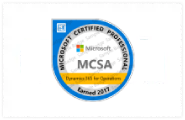You’re a retail store owner and you wake up one morning to find that your operations have been completely revolutionized. Your inventory is up to date, your sales are booming, and your customers are raving about their experiences.
How did this happen, you wonder?
The answer: Dynamics.
Dynamics isn’t just another software program – it’s a game-changer for retail store operations. With its powerful suite of business applications, Dynamics can help you streamline your processes, cut costs, and deliver an unforgettable customer experience. But that’s not all. It’s also scalable, customizable, and accessible from anywhere in the world.
So, why haven’t you made the switch to Dynamics yet? Maybe you’re worried it’s too complicated or expensive. Or maybe you’re simply not sure where to start. Whatever your concerns, we’re here to help.
Well, in this blog, we’ll take you on a journey through the world of Dynamics and retail store operations. We’ll show you how Dynamics can help you manage your inventory, boost your sales, and create long-lasting relationships with your customers. We’ll share real-world examples of businesses that have successfully implemented Dynamics and achieved incredible results. And we’ll provide you with actionable tips and best practices to help you get started on your own Dynamics journey.
So, are you ready to join the ranks of successful businesses that have already made the switch? Let’s dive in!
Understanding Dynamics for Retail Store Operations
Well, before we move into the details of Dynamics as retail CRM software, let’s take a brief overview of the system.
What is Dynamics?
Dynamics is a suite of business applications from Microsoft that helps organizations of all sizes to improve their operations. Dynamics offers a range of tools and features to help you manage your finances, supply chain, inventory, and customer relationships.
For retail stores, Dynamics provides a comprehensive solution that can help you manage every aspect of your business, from inventory management to POS systems.
How Does Dynamics Work?
Dynamics works by integrating with your existing systems to provide a centralized platform for managing all aspects of your business. With Dynamics, you can:
- Manage inventory levels in real-time, set up automated alerts, and track inventory across multiple locations.
- Customize your POS system with custom product lists, promotions, and payment options.
- Analyze sales data and customer behavior to make informed decisions about your business.
- Manage your supply chain from one central location and set up automatic replenishment rules.
Why is Dynamics Important for Retail Store Operations?
Dynamics retail CRM software is important for retail store operations because it offers a comprehensive solution that can help you save time and money, while also enhancing your customers’ experiences. By using Dynamics for your inventory management and POS system, you can:
- Improve inventory accuracy and reduce the risk of stockouts.
- Streamline your sales process and reduce checkout times.
- Analyze sales data and customer behavior to make informed decisions about your business.
- Optimize your supply chain and reduce costs.
Key Features of Dynamics for Retail Store Operations
Now that we’ve discussed what Dynamics retail CRM software is and how it can be used in retail store operations, let’s dive deeper into the key features that make Dynamics such a valuable tool for retailers.
-
Enhanced Inventory Management
One of the most important aspects of retail store operations is inventory management. Dynamics help retailers to better manage their inventory by providing real-time updates on inventory levels and automating inventory-related tasks such as order placement and fulfillment.
-
Streamlined Sales Management
Dynamics also offers a suite of tools for sales management, from creating and tracking sales orders to managing customer accounts and analyzing sales data. These tools allow retailers to make more informed decisions about their sales strategies and optimize their sales processes for maximum efficiency.
-
Robust Reporting and Analytics
Another key feature of Dynamics is its reporting and analytics capabilities. With built-in reporting tools and integrations with popular analytics platforms, Dynamics helps retailers to monitor their performance and make data-driven decisions about their operations.
-
Customizable and Scalable
Dynamics is also highly customizable and scalable, making it a great fit for businesses of all sizes. Whether you’re a small retailer just getting started or a large enterprise with complex operations, Dynamics can be tailored to your specific needs and can grow with your business over time.
-
Seamless Integration with Other Microsoft Products
As part of the Microsoft suite of products, Dynamics integrates seamlessly with other popular business tools like Excel, Outlook, and Power BI. This integration allows retailers to streamline their workflows and access all the tools they need in one centralized location.
Best Practices for Implementing Dynamics in Retail Store Operations
Now that we’ve covered the key features of Dynamics for retail store operations, it’s time to discuss the best practices for implementing it effectively. Whether you’re a small retailer or a large chain, there are certain steps you can take to ensure a smooth transition to Dynamics.
-
Conduct a thorough analysis of your current systems and processes!
Before you start implementing Dynamics, it’s important to conduct a thorough analysis of your current systems and processes. This will help you identify any areas that need improvement and ensure that Dynamics is implemented in a way that is tailored to your business needs.
-
Identify your goals and objectives!
The first step in conducting a thorough analysis is to identify your goals and objectives. What do you hope to achieve by implementing Dynamics? Are you looking to improve your inventory management, streamline your supply chain, or enhance your customer experience? Once you’ve identified your goals, you can start to assess how Dynamics can help you achieve them.
-
Identify potential roadblocks!
It’s also important to identify any potential roadblocks that may hinder the implementation process. This could include resistance from employees, lack of technical expertise, or compatibility issues with existing systems. By identifying these roadblocks early on, you can take steps to address them before they become major issues.
-
Choose the right implementation partner!
Choosing the right implementation partner is crucial to the success of your Dynamics implementation. Look for a partner with a proven track record of success, experience in your industry, and a deep understanding of Dynamics. A good partner will work closely with you to understand your business needs and goals and will help you tailor the implementation to meet those needs.
-
Develop a detailed implementation plan!
Once you’ve chosen an implementation partner, it’s time to develop a detailed implementation plan. This plan should include timelines, milestones, and specific tasks that need to be completed. It should also include contingencies for potential roadblocks and a clear communication plan to keep everyone informed and on track.
-
Provide comprehensive training and support!
Finally, it’s important to provide comprehensive training and support to your employees. This will help ensure a smooth transition to Dynamics and minimize any disruptions to your business operations. Your implementation partner should be able to provide training and support resources, but it’s also important to have internal resources in place to provide ongoing support and troubleshooting.
The Future of Dynamics Retail CRM Software
Well, now that we have covered the best Practices for Implementing Dynamics in Retail Store Operations, let’s move on and see what the future holds for the retail CRM software industry.
As technology continues to advance and customer expectations continue to evolve, it’s important for retail businesses to stay up to date with the latest trends and tools. Dynamics for retail store operations has already proven to be a powerful solution for streamlining processes and improving efficiency, but what does the future hold for this software?
Here are some potential developments and innovations to keep an eye on within the retail CRM software:
-
Integration with Artificial Intelligence (AI)
Artificial intelligence is already being used in a variety of industries to automate processes and improve decision-making. In the context of retail store operations, AI could be used to analyze data from various sources (such as sales, inventory, and customer behavior) and provide insights that could help businesses make more informed decisions. For example, AI could help retailers optimize their inventory levels, predict demand for certain products, and even personalize the shopping experience for individual customers.
-
Enhanced Mobility
Mobile devices are becoming increasingly ubiquitous, and many consumers expect to be able to shop from their phones or tablets. As such, it’s likely that future versions of Dynamics for retail store operations will place a greater emphasis on mobile functionality. This could include features such as mobile point-of-sale systems, mobile inventory management, and mobile data analysis tools.
-
Augmented Reality (AR)
Augmented reality is another technology that has the potential to revolutionize the retail industry. By overlaying digital information onto the physical world, AR could allow retailers to create more engaging and immersive shopping experiences. For example, customers could use AR-enabled devices to see how a piece of furniture would look in their home, or to virtually “try on” clothing items before making a purchase. As such, it’s possible that future versions of Dynamics for retail store operations will incorporate AR functionality.
-
Increased Focus on Sustainability
As consumers become more environmentally conscious, it’s likely that retail businesses will need to place a greater emphasis on sustainability. Dynamics for retail store operations could play a role in this by providing tools to help businesses reduce waste, optimize their energy usage, and track their environmental impact. For example, the software could provide data on the carbon footprint of different products or help retailers find ways to reduce the amount of packaging they use.
-
Continued Emphasis on Data Security
As with any software that handles sensitive data, it’s essential for Dynamics for retail store operations to have robust security measures in place. This will only become more important in the future as cyber threats continue to evolve. As such, future versions of the software will likely place a greater emphasis on data security, with features such as encryption, multi-factor authentication, and intrusion detection becoming even more important.
Wrapping Up
Wrapping up, Dynamics for retail store operations is a powerful tool that helps businesses streamline their operations, enhance customer experiences, and drive growth. By providing real-time insights, automating processes, and empowering employees, Dynamics retail CRM software can help businesses stay competitive in the rapidly evolving retail landscape.
As the world becomes increasingly digital, the demand for integrated technology solutions that can support omnichannel retail experiences is only going to grow. Businesses that invest in Dynamics retail CRM software now will be better positioned to succeed in the future.
At Folio3, we understand the challenges that retail businesses face, and we’re proud to offer robust Microsoft Dynamics CRM implementation and integration services that can help them thrive. With years of experience and a team of highly skilled experts, we’ve helped countless businesses leverage Dynamics to achieve their goals and drive success.
Don’t miss out on the opportunities that Dynamics can offer your retail business. Contact us today to learn more about our services and how we can help you unlock the full potential of Dynamics for your business.








